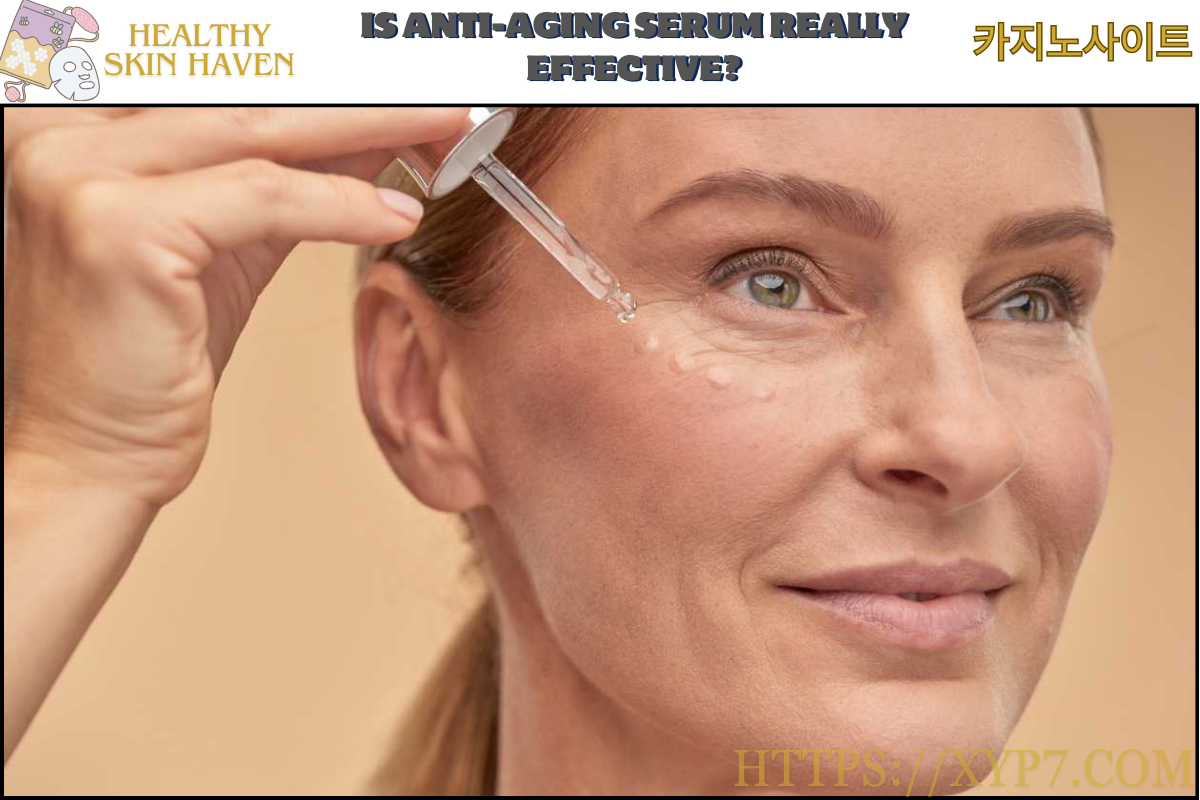Is Anti-Aging Serum Really Effective? Certain serums support healthy, more radiant-looking skin and help lessen the obvious signs of aging.
We’re all for natural aging because it’s a necessary and inevitable aspect of life. Still, a lot of us don’t relish the thought of becoming older. Our skin eventually gets dull, saggy, and wrinkled as we age, losing its natural glow.
Pro-aging (or anti-aging, as we like to call it) serums, along with a good diet and limited sun exposure, can help slow down this process. Certain serums can help protect your skin from environmental stressors and improve the texture and tone of your skin by utilizing active ingredients like hyaluronic acid or retinoids.
RELATED: The Hydrating Serum That’s Essential to Include in Even the Most Basic Routine

Anti-aging serum: What is it?
Serums that support aging gracefully are known as skincare products with active ingredients targeting visible signs of aging, such as wrinkles, age spots, and fine lines. Their purpose is to improve the appearance of your skin.
How do serums for skin that looks older function?
Our skin can become: as we age
- tiny
- creased
- arid
- tattered
- free
- flabby
- drab
- coarse
Serums that promote healthy aging contain active ingredients such as retinoids, peptides, and antioxidants, which can help reduce these changes. These substances have the power to increase the production of collagen, enhance the texture and tone of the skin, lessen the visibility of wrinkles and fine lines, and shield the skin from additional environmental stressor damage.
The most potent components in serums for skin that looks older
Serums with pro-aging support contain a number of useful ingredients that each have a specific function.
These are a few of the most typical ones:
Retinoids
Retinoids, a class of substances that come from vitamin A, comprise one category. Numerous skin issues, such as wrinkles, acne, and fine lines, are treated with them.
Retinoids function by promoting the production of collagen and increasing cell turnover. Which over time can improve the texture and appearance of the skin. In skincare, two popular forms of retinoids used are retinol and tretinoin.
Hyaluronic acid
A naturally occurring chemical called hyaluronic acid keeps your skin hydrated and plump. Hyaluronic acid can help minimize the appearance of fine lines and wrinkles and improve skin tone and texture when it is used in skincare products.
Peptides
Short chains of amino acids called peptides can pass through the skin and instruct cells to carry out particular tasks. Peptides can help stimulate the production of collagen and lessen the appearance of fine lines and wrinkles when they are used in skin care products.
Ferulic acid
An antioxidant derived from plants, ferulic acid is frequently found in skin care products. Applying ferulic acid topically can aid in scavenging free radicals and averting oxidative stress. Both of these are connected to the deterioration of collagen, hyperpigmentation, and additional indications of aging.
Ferulic acid is a common component of pro-aging serums because it may also increase the potency of other antioxidants, such as vitamin C and vitamin E.
Vitamin C
Antioxidant vitamin C aids in shielding the skin from harm from pollutants and UV rays, two common environmental stresses. Vitamin C, when applied topically in a serum, can also help brighten the skin, lessen the look of fine lines and wrinkles, and encourage the production of new collagen.
Glycolic acid
Alpha-hydroxy acids (AHAs) like glycolic acid are frequently found in skin care products because of their capacity to exfoliate skin and enhance its tone and texture. Applying glycolic acid topically can aid in removing debris and dead skin cells from the skin’s surface. Which can clog pores and result in a dull complexion 카지노사이트.
